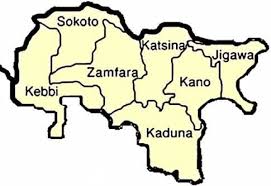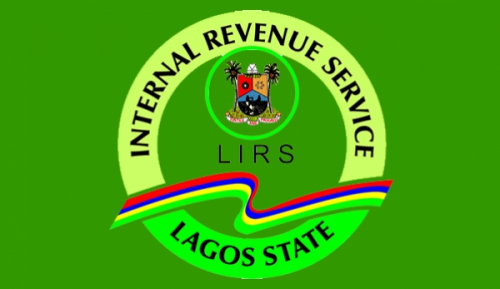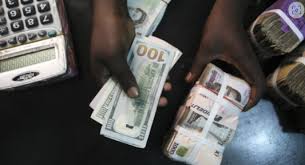UNICEF G4G Initiative: Improving menstrual and personal hygiene in northern states

Most girls in some Northern part of Nigeria were before now ignorant of how to take proper care of their personal hygiene especially during their monthly menstrual circle. Using pieces of rags was the common trend until the situation changed following the introduction of the Girls for Girls (G4G) initiative in the region. Doosuur Iwambe in this report examines the gains and impact of the programme on girls.
Thirteen year old Ummi Salma Hassan who would like to become a medical doctor in future is a primary six pupil of Tundun Wada Model Primary School Tsakuwa, Talata Marafa Local Government Area of Zamfara state, before now, Hassan said that she was using pieces of cloths in place of sanitary pad during her menstrual circle but the situation has changed with the G4G initiative.
“I was afraid the first time I saw my menses. I was afraid to clean up the used pieces of cloths that were already soaked with my blood. It was indeed a difficult task for me getting use to the trend of recycling the used pieces of cloths until succour came my way through the G4G initiative.
“The G4G programme has taught me how to make re-usable pads. During our training, we were given materials to make the pads by ourselves. Before then, I put any rag I find in my pant when my period comes.
This rag absorbs the blood for some time and later stains my pants. This programme has helped me improve my personal hygiene” she said.
The story was not different from that of Fatimatu Abubakar who recounted her gains from the G4G Initiative. She said that aside learning how to take care of herself during menstruation and even when she is not menstruating, she was taught how to make creams, soap and other handwork that has transformed her life.
“I now have my bath three times daily during my monthly period, and at each interval I change my pad. I wash each pad after use, and put it under the sun to kill germs and prevent infection.
After my menstruation, I put all the pads together and keep them for my next menstruation. The pad has a pin that I hook to my pant, this stops it from falling off unlike the rags I used before.
“My G4G mentors and teachers taught me the importance of good hygiene. Aside my personal hygiene, I can now make my soap and cream from what I’ve been taught here” Abubakar said.
She added that she was happy and grateful to her parents for allowing her to be a part of the group. “I am grateful that my parents allowed me to be going to school, unlike some of my friends.
If I will have the chance, I will go to school before I grow up and marry. I hope that we shall be given all the necessary books and teach us all that we need to know”.
On her part, Talata Jibrin, one of the mentors to the girls of Tundun Wada Model Primary School thanked UNICEF and other sponsors of the project saying, G4G is a life changing programme for both mothers and girls in Zamfara state.
“We appreciate UNICEF for coming to our aid and we pray God to bless them more to reach other girls that are yet to take part in this programme.
The programme has helped women and girls in the State to improve on their personal hygiene and self esteem.
It has also given us opportunity to learn various skills like pomade making, Izal making, liquid wash, beads making and others.
Most of the girls use the skills acquired to make money for their families”.
While calling on the State government to improve the standard of education in the local government through funding, she called on parents to allow their children to come out and be part of the program.
What is G4G Initiative
The G4G initiative is a component of the Girls’ Education Project phase 3 (GEP3), launched by UNICEF in 2017 and is being implemented in Northern Nigeria through collaboration between UNICEF Nigeria and the federal government, with funding from United Kingdom aid (UKaid) and Department of International Development(DFID).
The G4G empowers girls with information and knowledge to help build their capacity to stand up for themselves. It aims at creating equal opportunities for girls to access education.
According to UNICEF Representative in Nigeria, Mohamed Fall during the launch of the project in 2017, the primary goal of G4G was to empower girls with knowledge, skills and confidence needed to enroll and remain in school, completing the full course of education so they can be role model to other girls in their communities.
“Working with members of the Mothers Association as mentors, girls will initiate and lead a range of activities to identify barriers to the education of girls in their communities and work to remove such barriers so girls will enroll and remain in school.
So far, the G4G program has been established in over 100 selected schools in Girls Education Project (GEP) in Zamfara State with the aim of developing the girls interest in education, life skills and health. There are also 150 trained mentors on health, social and educational issues.
According to Mrs. Azuka Menkiti of UNICEF, More than 15,000 girls from Bauchi, Katsina and Zamfara have been enrolled and are currently participating in 813 established G4G groups across 18 LGAs in the 300 pilot schools in three states.
She said that the G4G support systems through Mothers Associations and Female Mentors was able to build a capacity of 3,536 members of Mothers Associations.
This according to her was to enhanced on strategies for increased enrolment and retention for 300 schools.
She added, “450 members of mothers’ associations in 300 school communities are engaging in the production of reusable sanitary towels for adolescent girl members of G4G groups while 400 Female mentors trained on G4G strategies and facilitation skills are supporting the G4G groups”.
Challenges
The Executive Director, Life Helpers Initiative, Mr Tayo Fatinukun, said that about 4,099 girls enrollment were spread to 100 selected schools in six Local Government Areas of Anka, Talatu-Mafara, Shinkafi, Kaura-Namoda, Bugudu and Tsafe.
He added that each of the schools had three mentors who were trained to relate with the girls on their challenges. He also said that out of the 4,099 girls, 960 among them were trained on social, vocational and health based issues.
On the challenges, Fatinukun who identified insecurity in some communities and LGAs, as part of the challenges hindering the progress of the program called on the Federal government to provide security to schools.
“some girls do not come to school regularly do to lack of access to some communities for mentoring. We always invite the mentors to safer locations” Fatinukun said.
He added that Media involvement, Low infrastructural development, and complimentary are also part of the project affecting the project.
150 mentors trained on health and education issues
Meanwhile, about 150 female mentors have been engaged in the schools to train the girls on social, vocational and health based issues.
100 local women from Mothers Associations across many communities of selected GEP LGA, who has some knowledge in sewing were selected and taught the skill of making Reusable Sanitary Pad, which is very cheap, friendly and affordable.
Start up kits were provided for them so that these pads can be made available to many girls in the communities in a very sustainable manner.
Some may not have seen or even never get to see an Always Sanitary Pad but now, they need not worry, they now have what meets their need.
These mothers are supporting their girls at the community to ensure that the challenges faced of not going to school during their menstrual period is entirely overcome. This is dignity recovered.
Talatu Jibrin, one of the mentors who also double as their teacher said that the program has broaden her knowledge beyond things she never knew.
“There are some things I never knew about as a teacher, but when G4G was introduced, they trained us and taught us a lot of things that has changed our lives.
“After we were trained, it was easy for us to convince the girls to partake in the G4G programme. Now, they are all happy to be part of it. We have all benefited in one or two ways from this programme. We are grateful to UNICEF and other partners directly and indirectly involve in making this a success,” she said.
Also, one of the mothers, Amina Abdulahi whose daughter is a participant in the program commended the sponsors of the program. She said that since G4G Initiative was introduced into the community, their children have regained their self confidence as well as personal hygiene.
“During our time, we didn’t know anything like pads, we used pieces of clothes for our menstrual period and also avoided going out through out that period, but that has changed as we were thought how to make pads for ourselves. Today we use pads, we can go out when we are menstruating without fear of being stained.”
For many mothers, their words are, ‘‘even though we didn’t have the time and opportunity to have gone to school, not our daughters, with the support of G4G we will do ensure they do.’’










